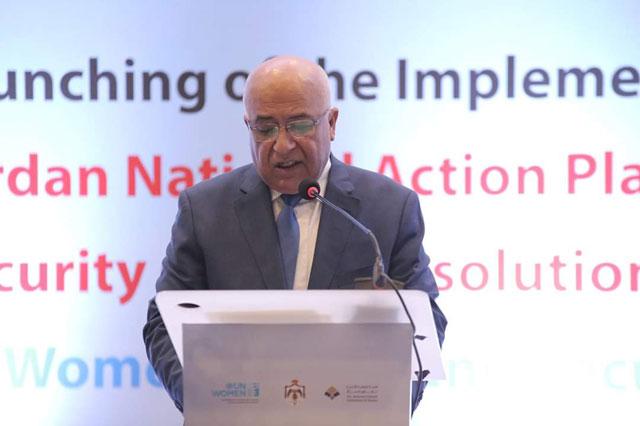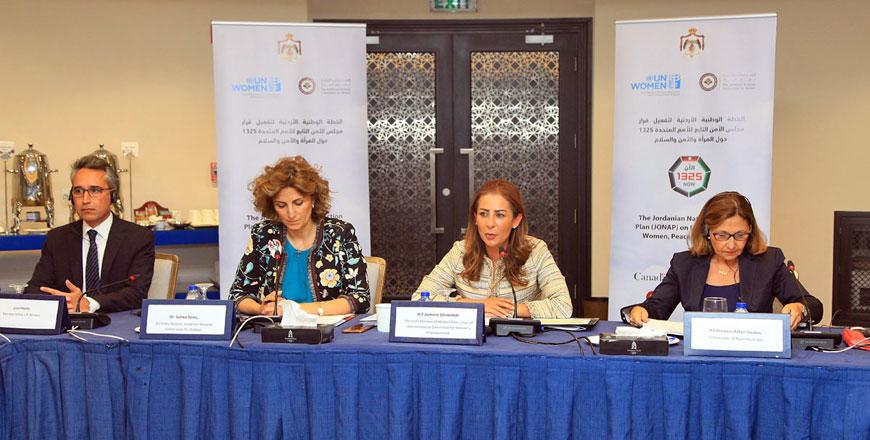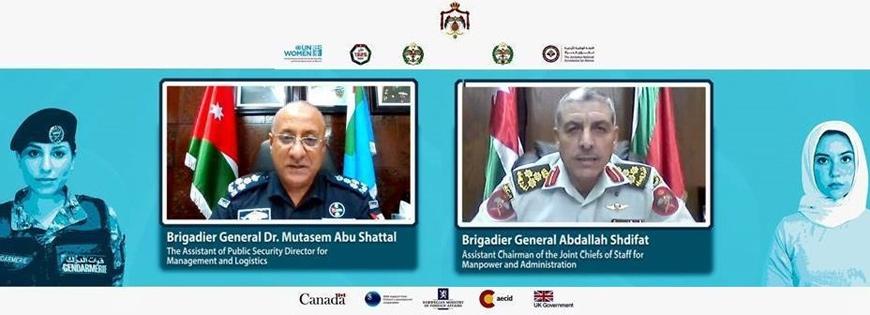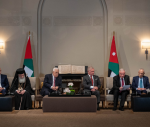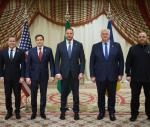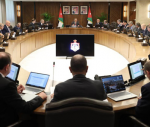You are here
Jordanian National Action Plan for UN resolution officially launched
By Rana Husseini - Feb 06,2019 - Last updated at Feb 06,2019
DEAD SEA — Interior Minister Samir Mubaidin on Wednesday launched the Jordanian National Action Plan (JONAP) for the implementation of UN Security Council Resolution 1325 on Women, Peace and Security.
Mubaidin, who was deputising for Premier Omar Razzaz, affirmed Jordan’s commitment to implementing the plan in a comprehensive manner by allocating funds to the relevant security and government institutions.
“We gather today to continue the national efforts that were exerted by groups of men of women in Jordan representing the security and military sectors, as well as government institutions and civil society, to ensure the implementation of UN Security Council Resolution 1325,” the interior minister said during his address to the gathering.
Mubaidin praised the role of the Jordanian National Commission for Women (JNCW) and UN Women in preparing reports to implement the resolution.
The interior minister also stressed the importance of adopting a mechanism to follow up on the implementation of the plan through the Higher Steering Committee and the Inter-Ministerial Committee for Women’s Empowerment.
The two-day conference, which was held at the King Hussein Bin Talal Convention Centre at the Dead Sea, was organised by the JNCW and UN Women in partnership and support with the embassies of Canada, Finland, Norway, Spain and the United Kingdom.
Canadian Ambassador to Jordan Peter MacDougall also addressed the conference, saying the high-level representation at the conference was a clear indication of the importance to which the government of Jordan gives to empowering women and advancing their active participation in peace and security.
“The launch of the implementation of Jordan’s National Action Plan on women, peace and security marks a momentous occasion, honouring Jordan’s — and the region’s — commitment to UN Security Council Resolution 1325,” MacDougall said.
The Canadian ambassador added: “The end goal is empowering Jordanian women and girls to take a greater role in creating peace, in working in the security sector and in making this country more equal and just for everyone.”
Edward Oakden, the UK’s ambassador to Jordan, told the gathering that “we are very keen to move from drawing up the plan to its implementation, so the British government [will]... support half of the cost of the implementation of the Jordanian national action plan for the next four years”.
Director of Policy at UN Women Paivi Kannisto praised Jordan for “its leadership on this vital agenda”, describing the implementation plan as a “global model”.
Jordan’s plan was drafted in a highly inclusive and participatory manner, involving women’s organisations, Kannisto explained.
The plan presented a focused timeline around key priorities, including women’s role in preventing violent extremism — a first of its kind for such plans globally, the UN official stressed.
The UN official concluded by saying: “Jordan’s experience in drafting and implementing its national action plan can serve as a best practice for other countries. It is one that UN Women will share widely.”
The government of Jordan endorsed JONAP in December of 2017 and formally launched it during a ceremony in March of 2018. The overall goal of JONAP was to contribute to Jordan’s stability and security by improving operational security responses, as well as ensure that the framework through which Jordan approaches peace and security recognises the needs of women and their human rights.
JONAP consists of four strategic goals in areas including security sector reform and peace operations, as well as the prevention of violent extremism.
The two remaining strategic goals include responding to women and young female refugees in Jordan, and building a culture of peace and gender equality with a focus on youth and preventing gender-based violence.
JNCW Secretary General Salma Nims said that “what is happening today is a dream come true”.
“We had strong faith that our plan would finally be implemented and the JNCW will follow up closely on the implementation process to ensure its success,” Nims said.
The 260 participants included representatives from Jordan, Lebanon, Palestine, Tunisia and Iraq representing governments, civil societies, media and youth organisations. The participants were divided into working groups structured around JONAP’s themes.
The outcomes of the working group discussions will serve as reference documents for JONAP’s technical working group during the implementation phase.
Related Articles
DEAD SEA — Minister of Political and Parliamentary Affairs Musa Maaytah on Thursday said that the government was committed to implementing t
AMMAN — Jordan is committed to implementing UN Security Council Resolution 1325 on Women, Peace and Security, Minister of State for Media Af
AMMAN — To mark the 20th anniversary of the United Nations Security Council Resolution (UNSCR) 1325 on Women, Peace and Security, the Jordan


